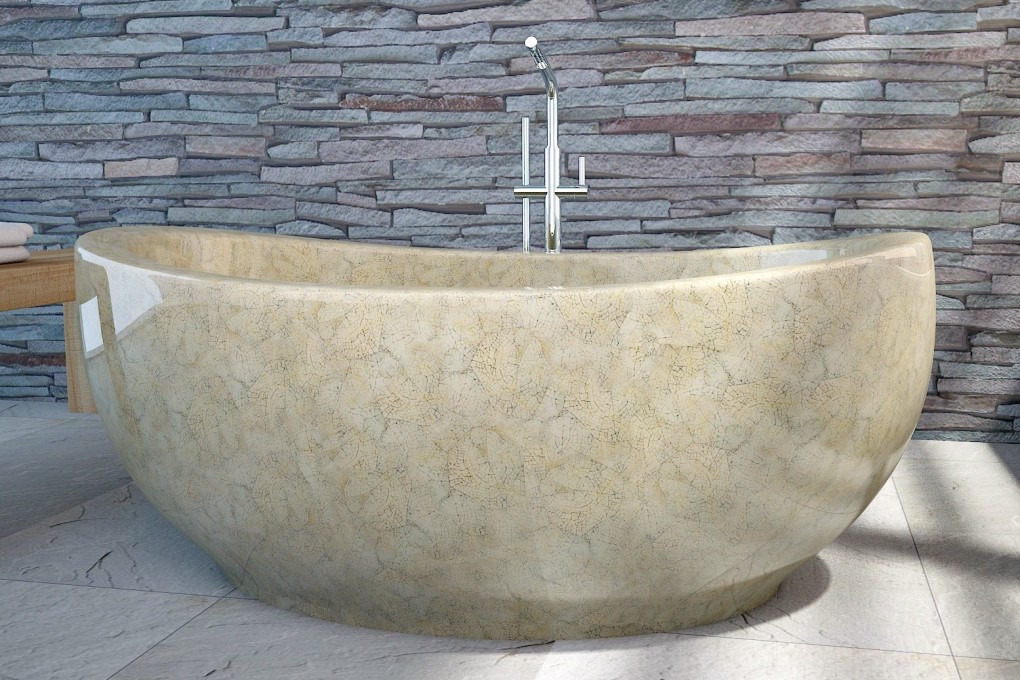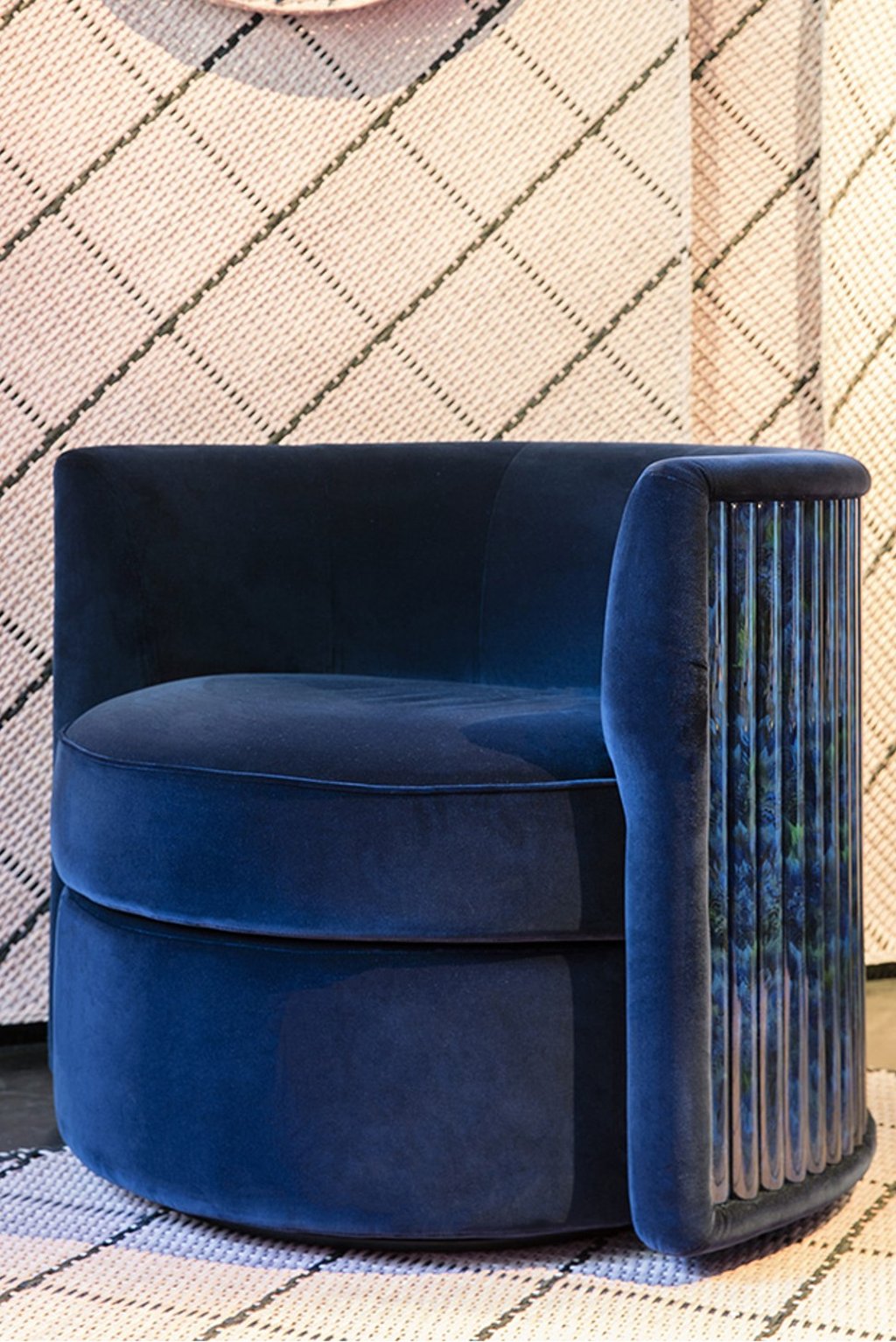Sustainable design: wealth of waste upcycled, recycled to make furniture with a conscience
- Waste materials such as bone, skins, feathers, shells, automotive parts, PET bottles, coffee grounds – you name it, furniture designers find uses for them
- From a superyacht bathroom to supermarket shelves, their creations have found growing acceptance as consumers understand the pressures on our planet

Designers are used to fielding unusual requests from their clients. So Lay Koon Tan wasn’t particularly fazed when the brief called for a bathtub inlaid with egg shells, inside and out.
Malaysian-born Tan and Dutchman Paul Hoeve are in the business of transforming waste into beautiful interiors finishes, so they were able to deliver.
The business partners founded their Swiss-based company, Nature Squared, in 2000, and now, with sustainability firmly in the global spotlight, pioneering initiatives such as theirs are celebrated in international design circles. The eggshell bathtub, which sits on a base of upcycled cow bone, was for an 88-metre superyacht designed by Australia’s Sam Sorgiovanni.
Tan and Hoeve use humble natural materials such as shells, seeds, bark, skins, feathers and bone, inlaid into surfaces using traditional techniques, to create bespoke furniture and fittings for high-end homes and hotels worldwide. But it is their first residential collection, a collaboration with British designer Bethan Gray, that has put Nature Squared on the map.

Called Exploring Eden, and unveiled at Salone del Mobile in Milan, Italy, in April, the collection of furniture and accessories includes a capiz (oyster) shell shelving unit, jade and pheasant feather lounge chairs, and pearl shell cylindrical stools, with the hero items being a scallop shell desk and a coffee table inlaid with pen shell (also known as Pinnidae, and from a large saltwater clam).